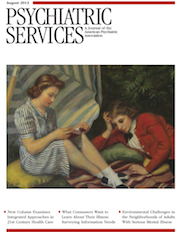Against Autonomy: Justifying Coercive Paternalism
This book will be of great interest to mental health professionals who are involved with issues concerning involuntary hospitalization and medication. Those who favor such treatments will want their own copy; those opposed should borrow a copy only long enough to write a scathing denunciation. There are likely to be no middle-of-the-road readers of this book.
Author Sarah Conly is a philosopher at Bowdoin College in Maine. She puts forward an argument “for paternalistic laws, and more specifically, paternalism of the sort that forces people to act, or refrain from acting, according to their best interests. I argue for the justifiability of coercive paternalism, for laws that force people to do what is good for them.” She specifically supports laws mandating seat belts for motorists and helmet use for motorcyclists, making cigarettes illegal, banning transfats from food, regulating portion size (such as was recently proposed in New York City for sodas), and other measures, which are sometimes characterized as “nanny state” attempts to improve personal health. To support her thesis, Conly reviews philosophical arguments favoring autonomy, such as John Stuart Mill’s On Liberty; the political dangers of giving government the authority to implement such laws; the issue of personal privacy; and evidence suggesting that people often act irrationally and contrary to their own best interests.
What are the limits of Conly’s “coercive paternalism”? She says such measures must meet four criteria. First, the activity to be prevented must be “one that is opposed to our long-term ends,” such as health. Second, the preventive measure must be effective. Third, the benefits of coercion must outweigh the costs. And finally, “the measure in question must be the most efficient way to prevent the activity.” Thus Conly does not support the prohibition of alcohol because doing so was not effective and also because the costs outweigh the benefits.
Although Conly says nothing about involuntary psychiatric hospitalization and medication, applying her criteria to these situations is useful. Individuals with serious psychiatric disorders who have anosognosia provide evidence of not thinking rationally, and being a danger to self or others is certainly not in their best interests. Coercive measures such as assisted outpatient treatment have proved effective. Whether the benefits of coercive paternalism are greater than the costs may be debated, but I personally believe they are, if coercive treatment is restricted to the small number of patients needing it and is subject to judicial overview. Finally, coercive treatment should be used only after other methods of persuasion have been tried and failed.
In summary, for those interested in the issue of involuntary hospitalization and treatment, this is a good book to read on a leisurely afternoon when one can contemplate its philosophical and practical implications and ponder questions such as, “What should be the role of government?”



